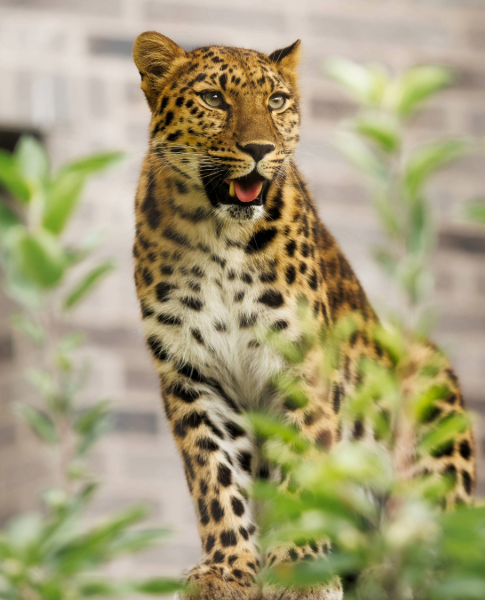Vetting Turtles in Vietnam Q&A WITH Dr. Selig
Posted on Thursday, January 25th, 2024
As a founding partner of the Asian Turtle Program (ATP), your Zoo has been a leader in the protection of Asia’s freshwater turtles and tortoises for over 20 years, and Dr. Selig’s contribution to the program’s growth has tangible impact on the ground.
The Asian turtle crisis is a pressing conservation issue affecting nearly one-third of all freshwater turtle and tortoise species and disrupting the ecosystems in which they play an important role. Illegal hunting and trade remain key threats to Asian turtles; ATP addresses this by providing training for enforcement officers and forest rangers, receiving and rehabilitating confiscated turtles, and conducting public awareness efforts to promote turtle conservation.
For this trip, Dr. Selig brought not only his veterinary expertise but also a large stock of crucial medical supplies that the ATP team is unable to procure in Vietnam. Funded by Cleveland Zoological Society, these supplies totaled over $5,000 and included UV lights, scales, sutures, antibiotics, anesthetics, and nutritional supplements. Dr. Selig recently shared some highlights from his trip, along with exciting updates from the Asian Turtle Program.
What do the Asian Turtle Program and Turtle Conservation Centre do?
The Asian Turtle Program and Turtle Conservation Centre are really important for turtle conservation. When turtles are confiscated (from illegal traders), they go to the Turtle Conservation Centre – which the Asian Turtle Program manages – with the goal of hopefully being able to reintroduce those turtles into the wild. Turtles that aren’t reintroduced into the wild often become part of what we call an “assurance colony”. Those turtles are used in captive breeding programs that eventually release their progeny, or baby turtles, back into the wild if we’re able to find a suitable habitat.
What types of veterinary procedures did you do at the Turtle Conservation Centre?
Typically, I’m tasked with doing some of the more complicated procedures. Fish hook removal is one of the more common ones, but there are turtles with masses that need to be removed, and even limb amputations. Additionally, ATP has staff that provides veterinary care on a regular basis. I coach them through some of the more complicated procedures so when I’m not there to help, they can confidently do things like place a feeding tube. We also talk through best practices for managing different types of wounds they see on turtles.
What’s new with the Asian Turtle Program since your last trip?
Since the last time I was there, the Asian Turtle Program has opened a hatchling building, which allows them to take on more reproduction efforts for some of the critically endangered species – it gives them a better area to rear these turtles. Additionally, they’re currently working on a new quarantine site where they’ll have an expanded hospital and larger quarantine facilities for the large number of turtles that come into the center.
What does Cleveland’s support mean for this program, and what could it mean for the future of turtle conservation in Vietnam?
Cleveland Metroparks Zoo has been supporting ATP for over 20 years – it’s our longest running conservation program here at the Zoo. That coupled with support from Cleveland Zoological Society means we’ve been able to do a lot of really good work with this program over the years – things like providing funding, but also sending me over there to provide medical supplies they are unable to access and to help train some of the staff there. This was my third trip to Vietnam and I’ve been able to watch one veterinarian go from having very limited ability to now having a pretty advanced skill set. She’s able to do a lot of things she just couldn’t do before – it’s really great to see that progression.
Some program aspects we’re really excited about: there’s an endemic species of turtle in Vietnam called the Vietnamese pond turtle that with our continued support, could be downlisted from IUCN Red List status of “Critically Endangered” to “Endangered” just by helping identify crucial habitat for this turtle and getting some of those turtles back out into the wild. Additionally, one of the flagship species they work with is the Rafetus, or Swinhoe’s softshell turtle. It’s literally the most endangered invertebrate animal in the world. Currently there are only a couple individuals known to exist and the ATP team is monitoring those animals. Although the situation is dire, there is still time for us to be able to find other animals and to continue supporting the Asian Turtle Program team in their efforts to try and save the species from extinction.


